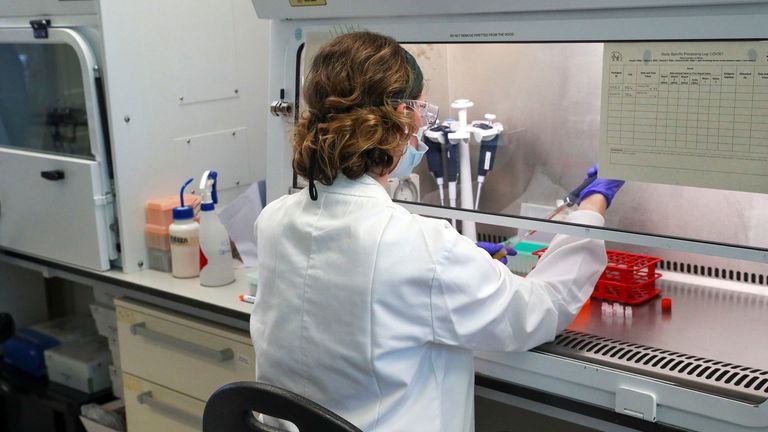The International Air Transport Association (IATA) is urging governments to begin planning now to ensure a vaccine reaches populations in every corner of the globe.
The IATA warns delivering the vaccine will be the “mission of the century” for the aviation industry, cautioning governments to prepare for the “mammoth and complex task ahead.”
Live coverage of the latest coronavirus news and updates
IATA’s Director General and CEO, Alexandre de Juniac said: “Safely delivering COVID-19 vaccines will be the mission of the century for the global air cargo industry. But it won’t happen without careful advance planning. And the time for that is now.
“We urge governments to take the lead in facilitating co-operation across the logistics chain so that the facilities, security arrangements and border processes are ready for the mammoth and complex task ahead.”
The group, which represents 290 airlines, has estimated 8,000 747 cargo aircraft are needed to ship enough vials for a single dose per person.
It is still not clear when, or if, a vaccine for coronavirus will be ready and how many doses may need to be given to make it effective.
The Oxford vaccine, a front runner in the vaccine race, has been put on hold while a suspected serious adverse reaction in one of its volunteers it investigated, the makers AstraZeneca said.
International airlines have downsized fleets, put aircraft into storage and furloughed staff amid a drop in passenger numbers.
The WHO, UNICEF and GAVI the Vaccine Alliance, have already reported difficulties in obtaining vaccines for planned vaccination programmes.
The IATA said the need to transport vaccines in temperature controlled containers between 2C and 8C and tightened international borders will slow down supply chains without government intervention.
It said fast-track procedures for flights and aviation staff need to be introduced as well as removing limits on when planes can fly.
Added security will have to be in place to protect shipments from tampering or theft, it added.
:: Subscribe to the Daily podcast on Apple Podcasts, Google Podcasts, Spotify, Spreaker
Mr de Juniac said that while land transport would also be key, any vaccine cannot be delivered to everyone on the planet without the use of planes.
He added: “In planning their vaccine programs, particularly in the developing world, governments must take very careful consideration of the limited air cargo capacity that is available at the moment.
“If borders remain closed, travel curtailed, fleets grounded and employees furloughed, the capacity to deliver life-saving vaccines will be very much compromised.”
Across the globe researchers are testing 38 vaccines in humans. Another 92 vaccines are at early stages of animal testing.

